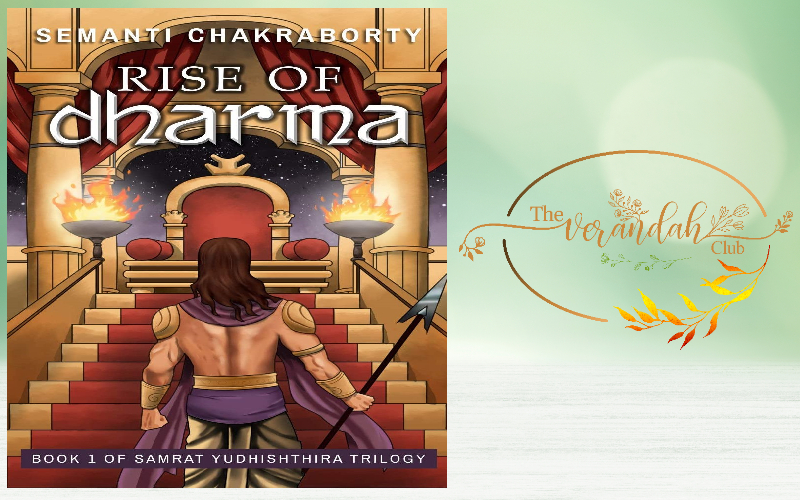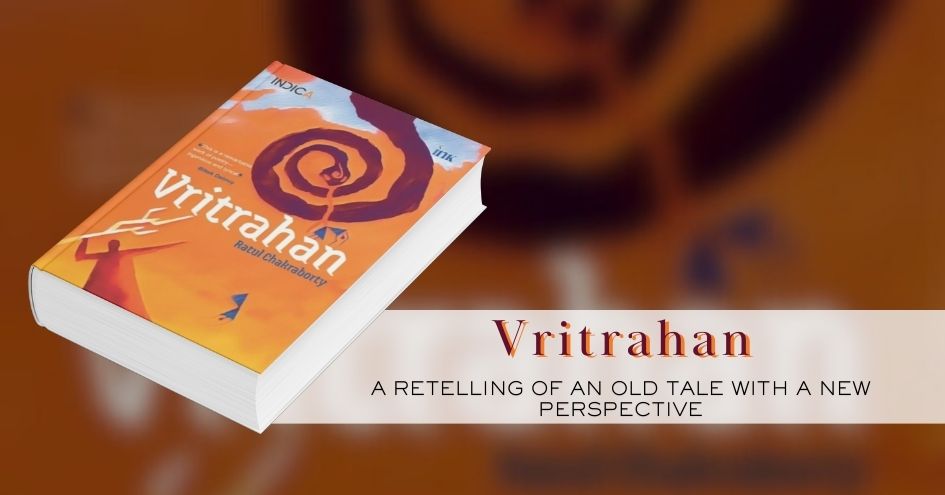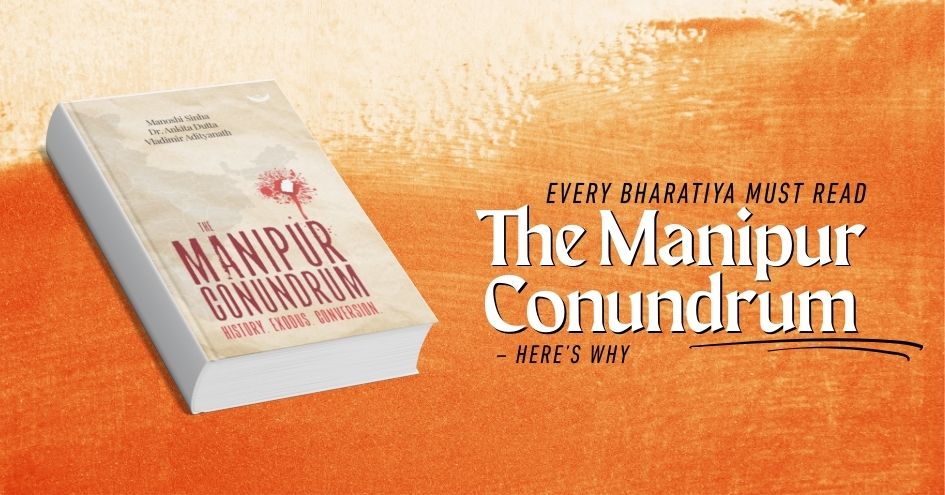
Name: 'Rise of Dharma' (Book 1 of Samrat Yudhishthira trilogy)
Author: Ms. Semanti Chakraborthy
Publisher: Self-published (Amazon Kindle version)
From the safe haven of the Shatasringa forest, Yudhishtra’s found himself at the sky scraping yet unwelcoming gates of Hastinapura on the demise of his father, Pandu. Amid jealousies, competition and conspiracies began the battle of protecting his family and his future subjects. But this is something that anyone who has read Mahabharatha would know. Also, facts such as he was a kindhearted ruler, an epitome of dharma, a proficient gambler who pledged even his wife in a phase of weakness and so on. So, what is new?
The author Ms. Chakraborthy presents the story of Mahabharata from the point of view of Dharma Raja. Thus, it comes as whiffs of fresh breath with respect to the ruler himself. A warrior is defined by his weapon. But Yudhishtra’s uniqueness lay in his weapon: the spear. An interesting yet uncommon choice of weapon.
As a student of weaponry, Yudhishtra initially never expressed his interest in proving his mettle as a warrior. He was reluctant to take up the arms as he felt it went against the Dharma. Thus, he always received the flak of his Guru. But an enlightening session with Sage Vyasa, Yudhishtra realized that weapons were sometimes needed to reinstate Dharma.
The author presents him as a dutiful king. But the qualities of a king were like a second skin to him. He was an empath and that won the hearts of the masses. He understood the fact that the subjects of the kingdom had the right to judge a ruler’s decision as it was going to decide their fate. However, all this proved to be his strength as well as his weakness. When overpowered by the concern to refrain from causing unwanted bloodshed, his guides like Krishna, Vyasa and Vidura were always beside him to put sense into him.
Lesser words and deeper thinking defined Yudhishtra. It is interesting that he and Vidura shared a secret code language that actually helped the Pandavas escape from Varnavata.
Above all, the author has deftly handled the beautiful relationship between Draupadi and Yudhishtra. This bond has never been brought to fore. At first, he was guilty bound when Draupadi was ordered to be the wife of all the Pandavas. But her maturity in handling the situation won Yudhishtra’s heart. In due course, she became his chief advisor in every way. Indeed, a friend, confidante, and guide.
Yudhishtra was an undying optimist. He turned the barren land of Khadavaprastha into a flourishing and bountiful Indraprastha. Even in the case of his cousins, he hoped that they would turn a new leaf.
The first book in this trilogy explores how the early life of Yudhishtra shaped his life as the Samrat of Bharathavarsha. It is an apt start to a less explored yet interesting version of the Mahabharatha through the eyes of Yudhishtra. Indeed, worth a read to gain a fresh perspective to the age-old mythological tale.
Janani Rajeswari is a freelance journalist who feels writing is a way of staying happy and positive. She teaches foreign languages. She also loves music, pets, books, movies, art and craft and learning new languages.
NEXT ARTICLE

Saiswaroopa Iyer is an author who needs no introduction. She is one of the authors who pioneered Puranic fiction in India with books exploring tales f...

Indra killed Vritra using his Vajra. Once again, good won over evil and dharma over adharma. This is a story most Bharatiyas know. The story is a pa...

The recently-released book on Manipur titled The Manipur Conundrum – History. Exodus. Conversion. – is the result of tiring efforts by three Bharatiya...